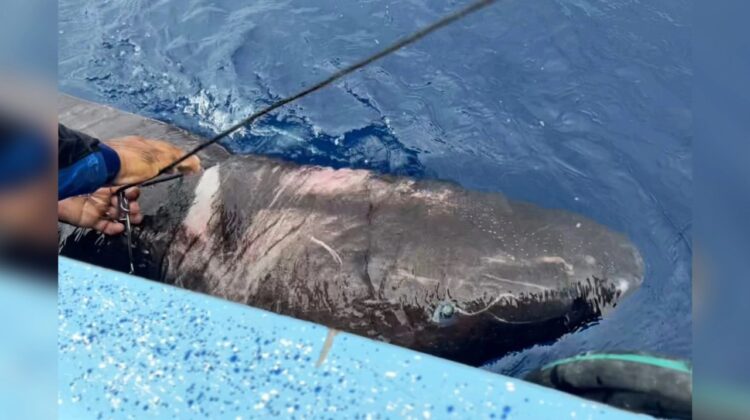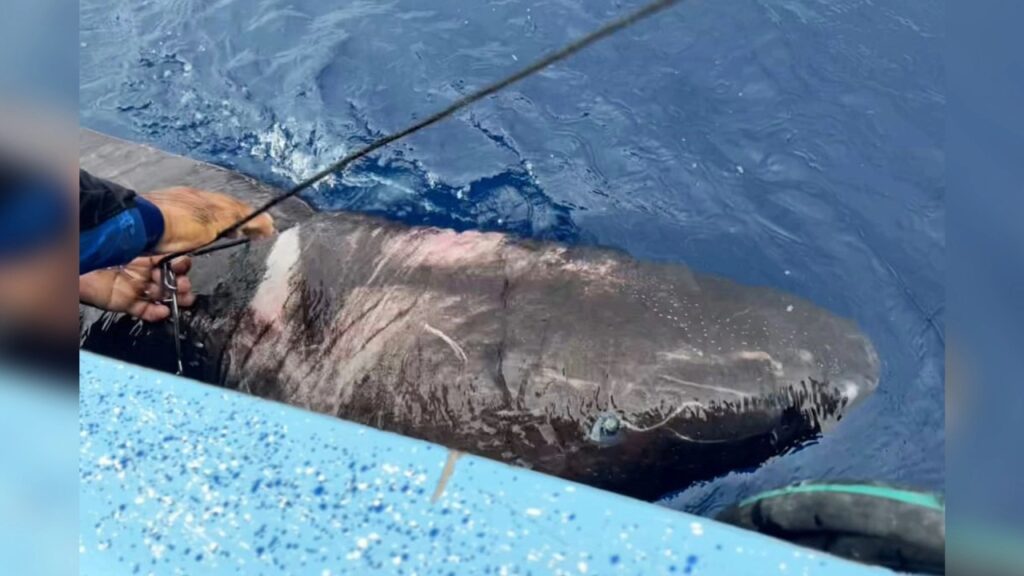
According to Mote Marine Laboratory & Aquarium, a half-blind shark that is often found in the icy seas of the Arctic, where experts claim their lifespans can exceed 500 years, was recently identified in the Caribbean.
While working with local fishermen in Belize to tag tiger sharks, Florida International University Ph.D. candidate Devanshi Kasana and the group came upon something unusual.
The group discovered something unexpected when they checked their fishing lines one last time.
“On the other end of one was a very lethargic creature—not a tiger shark. According to a FIU news release, it appeared to be old—even ancient—and more like an extended, smooth stone that had come to life. It had tiny, light blue eyes and a flat nose. Together, these hints convinced experts that it belonged to the sleeping shark family.

Both the fishermen and I were aware that it was odd since we had never encountered something like in our combined years of fishing, Kasana remembered.
It was determined to be a member of the sleeper shark family after considerable discussion with numerous Greenland shark specialists, and it is most likely a Greenland shark or a hybrid between the Greenland shark and Pacific sleeper shark.
According to Mote, scientists are still somewhat baffled by Greenland sharks.
According to the laboratory and aquarium, “what is known about them is that they tend to be observed in the chilly waters of the Arctic and North Atlantic oceans.” The species that moves slowly also grows slowly.
The species is considered to be the longest-living vertebrate known to science, with an estimated life span of at least 250 years and maybe more than 500.
Because so little is known about them, Mote said, “nothing about the species can be categorically ruled out. It’s possible that Greenland sharks are cruising the ocean’s depths all over the planet.
Although the encounter was the first of its sort to be discovered in the western Caribbean, it might not be the last.
In order to be prepared in case lightning strikes twice, the crew was given four satellite tags. This will bring them one step closer to understanding how these sharks survive in the tropics.
If they find another sleeper shark in the Caribbean waters, Demian Chapman, Director of Sharks and Rays Conservation Research at Mote Marine Laboratory & Aquarium, said he’d purchase some lottery tickets. But the crew is prepared if it does.

Leave a Reply